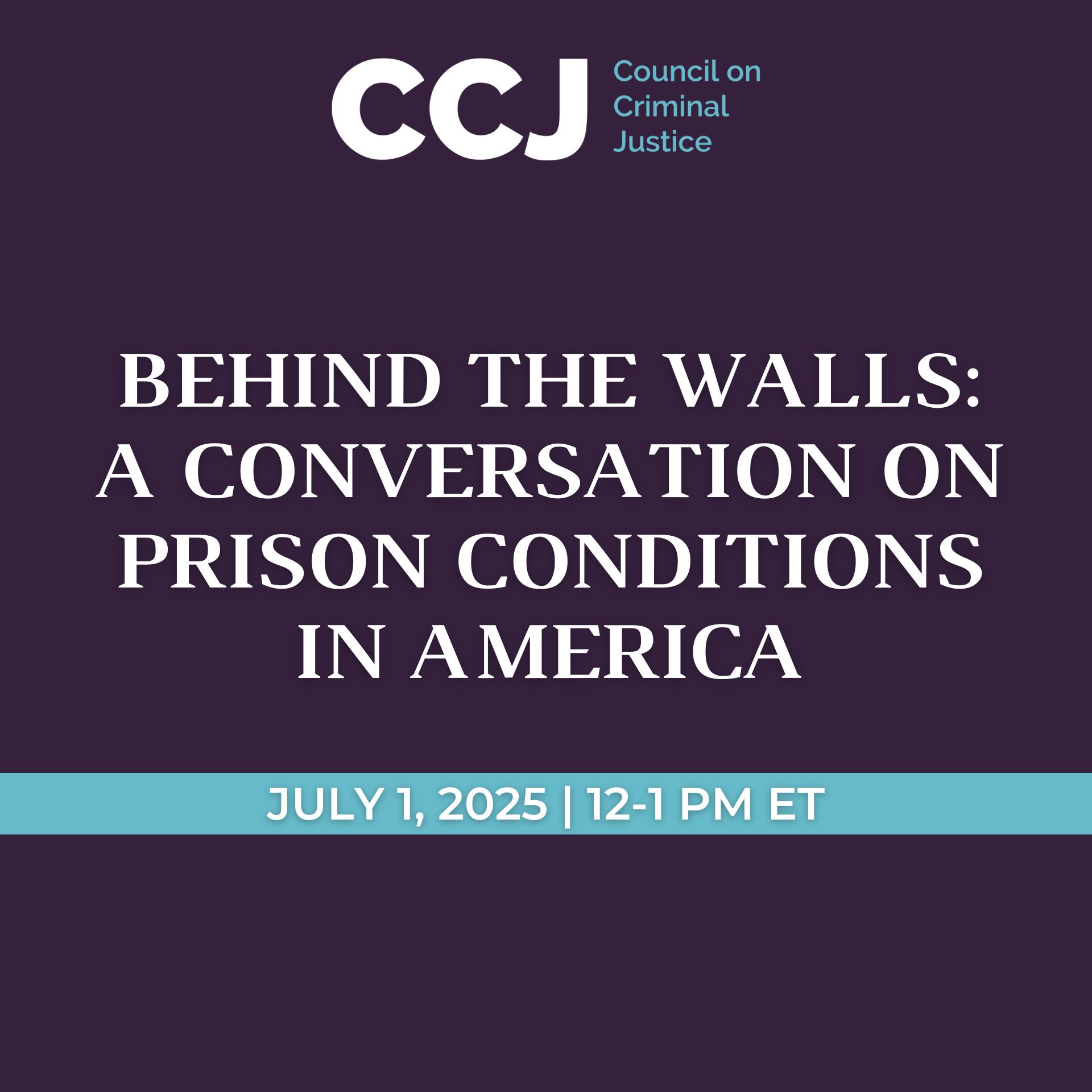Led by two former defense secretaries, CCJ commission also says Congress should reverse policy that bans VA healthcare for veterans behind bars
EMBARGOED FOR RELEASE
5:00 a.m. ET, October 30, 2024
Contact: Jenifer Warren
jwarren@counciloncj.org
(916) 217-0780
WASHINGTON – The American business sector and agencies at all levels of government should adjust their employment policies to prioritize the hiring of justice-involved veterans, the Council on Criminal Justice (CCJ) Veterans Justice Commission said in releasing its third set of recommendations today. Promoting “second chance veteran” hiring would enhance public safety, honor veterans’ sacrifices, and support their efforts to thrive in the country they have served.
The 15-member commission, which is chaired by former U.S. Defense Secretary and U.S. Sen. Chuck Hagel and includes former Defense Secretary and White House Chief of Staff Leon Panetta, also said Congress should require the Department of Veterans Affairs (VA) to provide medical and mental healthcare for incarcerated veterans, restoring a long-held benefit eliminated 25 years ago.
Noting that finding a job is a daunting challenge for veterans and others leaving jail or prison, the commission called on the business community to collaborate with correctional facilities, technology platforms, and community supervision agencies to prioritize veterans in existing efforts to hire people who have been involved in the criminal justice system. To accelerate this change, the commission created a model hiring policy outlining best practices for recruiting and employing justice-involved veterans. The Second Chance Business Coalition, a network of companies committed to hiring people with criminal records, advised the commission on the policy and pledged to promote it.
“Too many veterans leaving our criminal justice system struggle to find work and resume their lives as contributing members of their families and communities,” said Hagel, the only Vietnam veteran and the first enlisted combat veteran to have served as Secretary of Defense. “This is unacceptable. America’s business and government leaders must do more to honor veterans’ service to this country by reducing barriers that bar them from the jobs they need to succeed.”
Roughly 200,000 active-duty service members leave the armed forces each year, and while most transition successfully, many struggle with mental health and substance use disorders, the effects of PTSD, homelessness, and criminality. One in three veterans report having been arrested and booked into jail at least once.
Veterans who become incarcerated lose access to healthcare from the VA, preventing them from receiving the specialized treatment they need to address PTSD or other challenges, the commission found. The suicide rate for veterans is approximately 1.5 times higher than the rate among the general population, and justice-involved veterans are nearly twice as likely to attempt suicide as veterans with no history of criminal justice involvement.
The absence of VA care in correctional facilities stems from a federal rule change formalized in 1999. The change prohibited the VA from providing health care to veterans under the care of another government agency, terminating a significant benefit and reversing nearly 70 years of VA practice. The change left care of incarcerated veterans in the hands of non-VA providers, who typically lack the specialized training VA clinicians receive. The commission said this is of particular concern for service-related conditions involving trauma. PTSD can elevate the risk that veterans will engage in criminal behavior, making targeted VA-provided care particularly important.
“Veterans who have risked their lives to serve our nation deserve the best health services our nation can deliver, whether they’re incarcerated or not,” said Panetta, who is also an Army veteran and former congressman. “Ensuring they receive it, and ensuring the invisible wounds of war are treated by those best trained to help them heal, is the right thing to do—and it benefits us all.”
The commission’s report, From Confinement to Community: Supporting Successful Veteran Reentry and Employment, included three additional recommendations to strengthen support for veterans with misdemeanor or felony convictions:
- Federal agencies should remove administrative barriers that restrict housing opportunities for formerly incarcerated veterans and significantly complicate their reentry. In addition, Congress should pass legislation to prevent the VA’s erroneous payment of benefits during some veterans’ confinement, a practice that can saddle them with substantial debt as they return home.
- While veteran-specific housing units in prisons and jails have become increasingly popular, they have not undergone rigorous study. The commission called on Congress to fund and direct the Department of Justice, through the National Center for Veterans Justice proposed by the commission, to coordinate research on veterans housing units and develop best practices for their use.
- The commission urged the federal government and states to enact “second look” legislation enabling veterans to receive mitigation considerations for military service in resentencing, parole, and clemency processes. Second look policies have been adopted in 12 states and the District of Columbia, but, except in California, incarcerated veterans have few opportunities to request resentencing based on facts related to their service.
CCJ launched the commission in August 2022 to assess the extent and nature of veterans’ justice-system involvement and recommend improvements. Support for the commission comes from Bank of America, The Arthur M. Blank Family Foundation, the Just Trust, LinkedIn, the National Football League, Craig Newmark Philanthropies, T. Denny Sanford, Southern Company Foundation, and the Wilf Family Foundations as well as the John D. and Catherine T. MacArthur Foundation and other CCJ general operating contributors.
Members of the Veterans Justice Commission
- Chuck Hagel (Chair), 24th Secretary of Defense, U.S. Department of Defense; U.S. Senator (Nebraska)
- Chief Justice Michael P. Boggs, Supreme Court of Georgia
- Carla Bugg, Criminal Justice Services Coordinator, Recovery Organization of Support Specialists
- Dr. Andrea Finlay, Ph.D., Research Health Scientist, Veterans Administration Center for Innovation to Implementation (liaison)
- Pelicia Hall, Senior Vice President, ViaPath Technologies; former Commissioner, Mississippi Department of Corrections
- Greg Hamilton, Chief Customer Officer, CIVICTEC; Sheriff, Travis County, TX (ret.)
- Maj. Gen. Mark Inch, United States Army (ret.); former director, Federal Bureau of Prisons; former Secretary of Corrections, FL
- Sgt. Maj. Alford McMichael, 14th Sergeant Major, United States Marine Corps (ret.)
- Gen. Maryanne Miller, United States Air Force (ret.)
- Justice Eileen C. Moore, Associate Justice, 4th District Court of Appeal, CA; Army Nurse Corps, U.S. Army
- Hon. Leon Panetta, 23rd Secretary of Defense, U.S. Department of Defense; former White House Chief of Staff; CIA Director; OMB Director; U.S. Congressman (California)
- Master Chief Petty Officer Vincent W. Patton III, Ed.D., Senior Vice President for Leadership Development, NewDay USA; United States Coast Guard (ret.)
- Maj. Gen. Angela Salinas, Chief Executive Officer, Girl Scouts of Southwest Texas; U.S. Marine Corps (ret.)
- Dr. Ronald Self, Ph.D., Director, Veterans Healing Veterans from the Inside Out
- Dr. Jo Sornborger, Psy.D.; Executive Director, Operation Mend, UCLA Health
- Gen. Peter Chiarelli, Vice Chief of Staff, U.S. Army (ret.); Member, CCJ Board of Trustees (senior adviser)
About the Council on Criminal Justice
The Council on Criminal Justice (CCJ) is a nonpartisan think tank and invitational membership organization that advances understanding of the criminal justice policy challenges facing the nation and builds consensus for solutions based on facts, evidence, and fundamental principles of justice.



